This Singapore farmer is one tough egg to crack
Fresh out of polytechnic, Ma Chin Chew expected to be done with a childhood of chasing chickens around. He would be spending the rest of his days sailing with the Navy, so he thought.
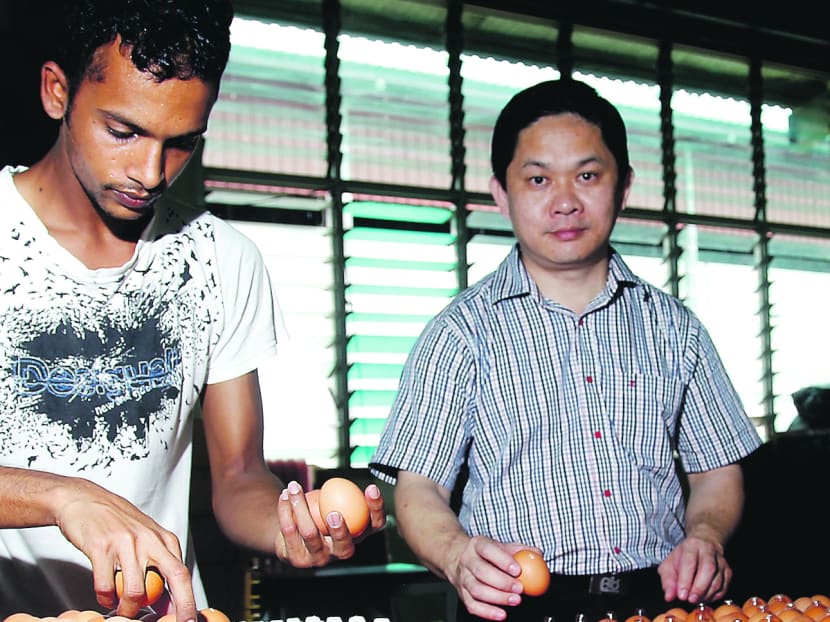
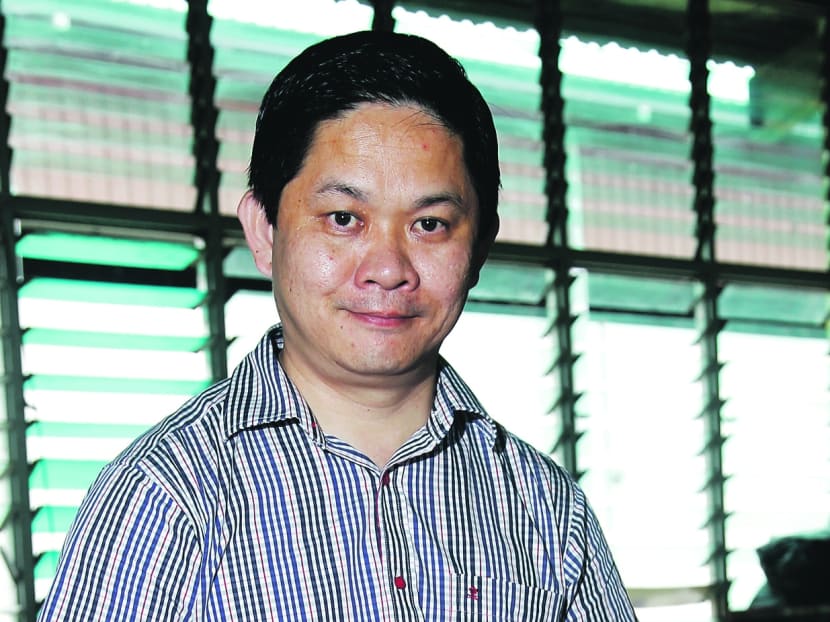
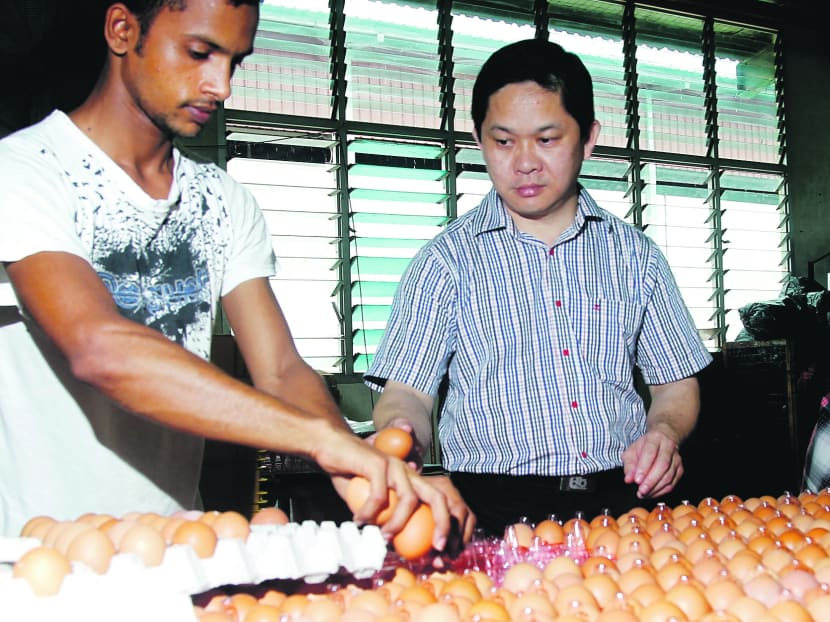
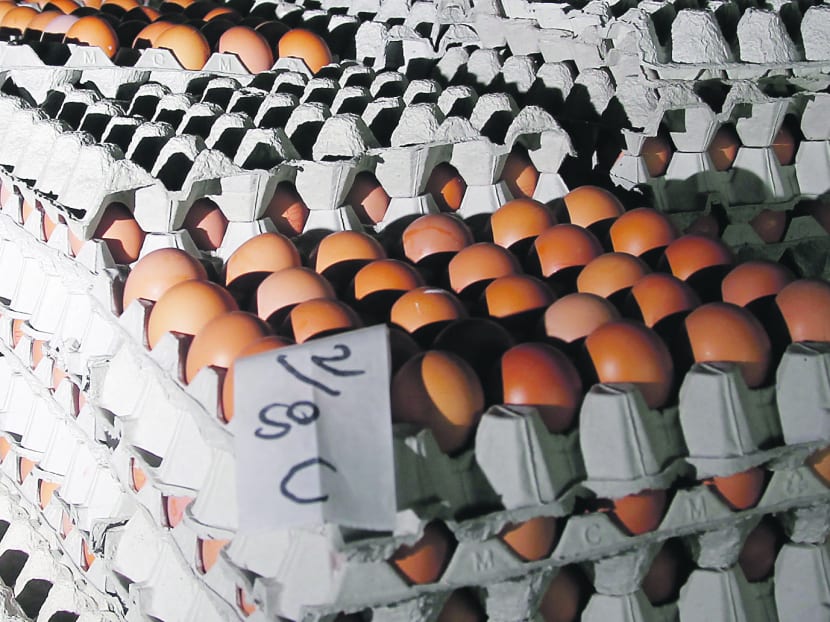
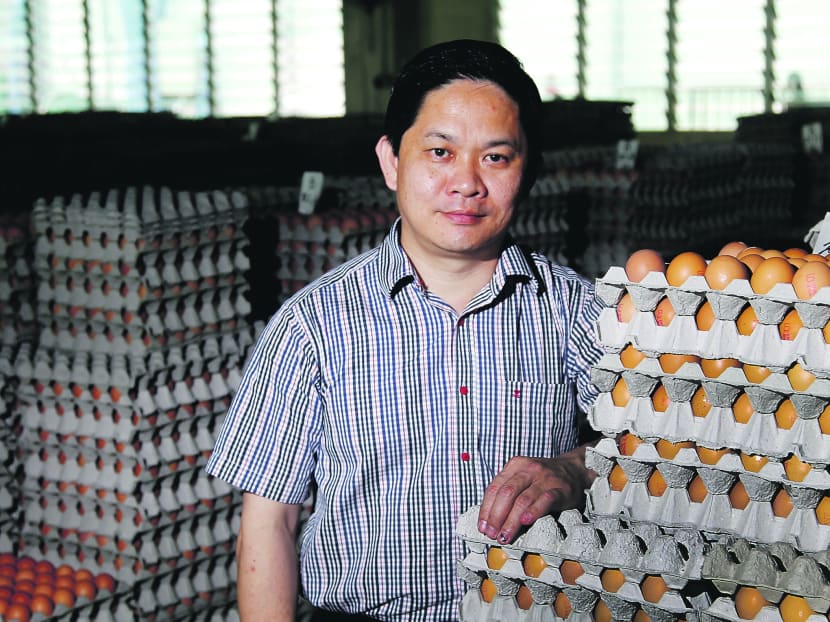
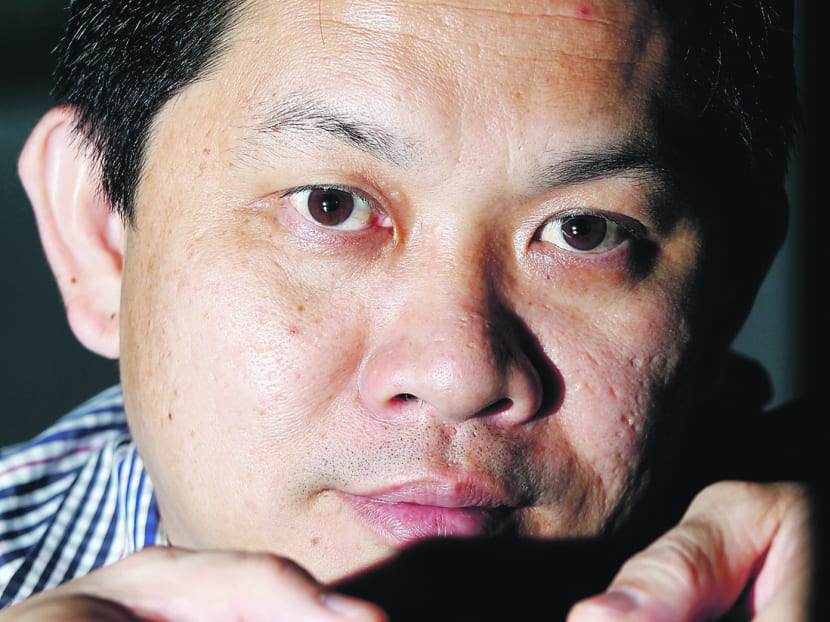
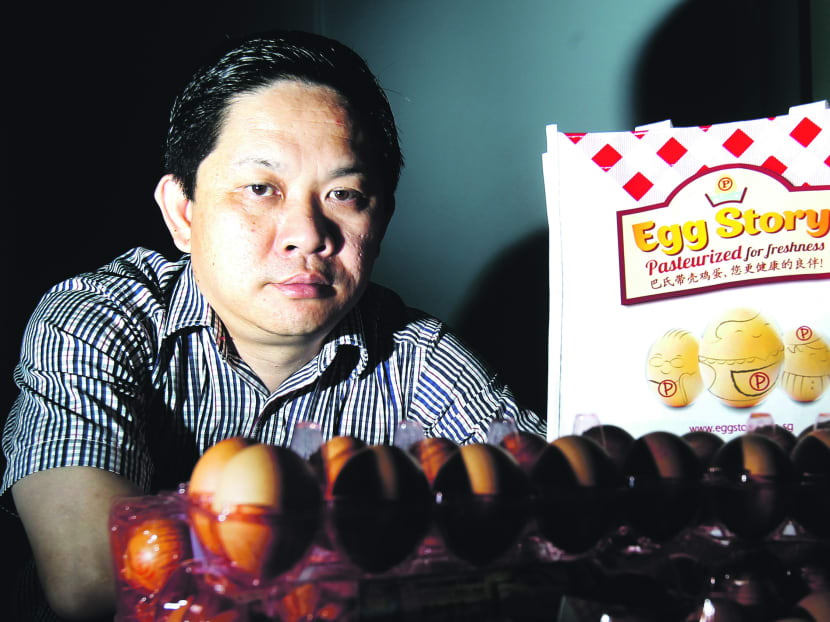
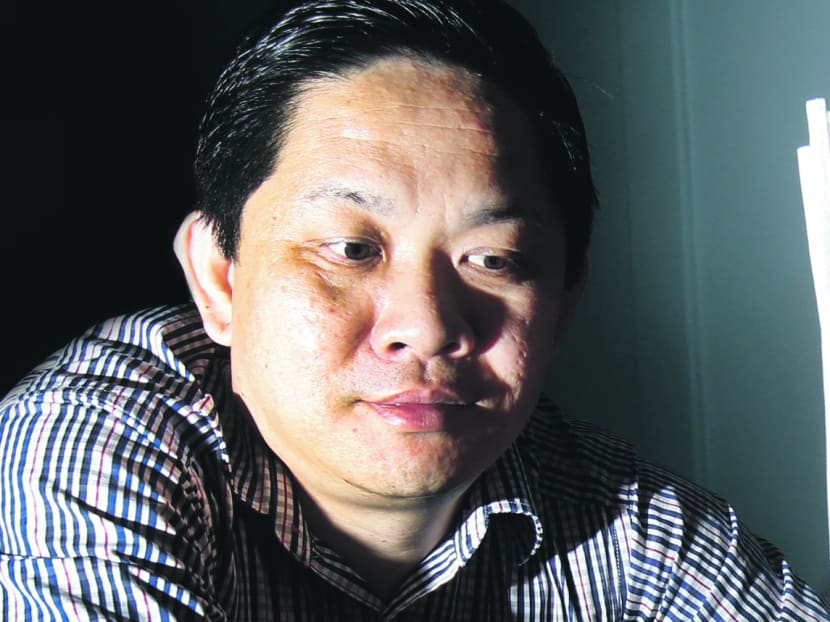
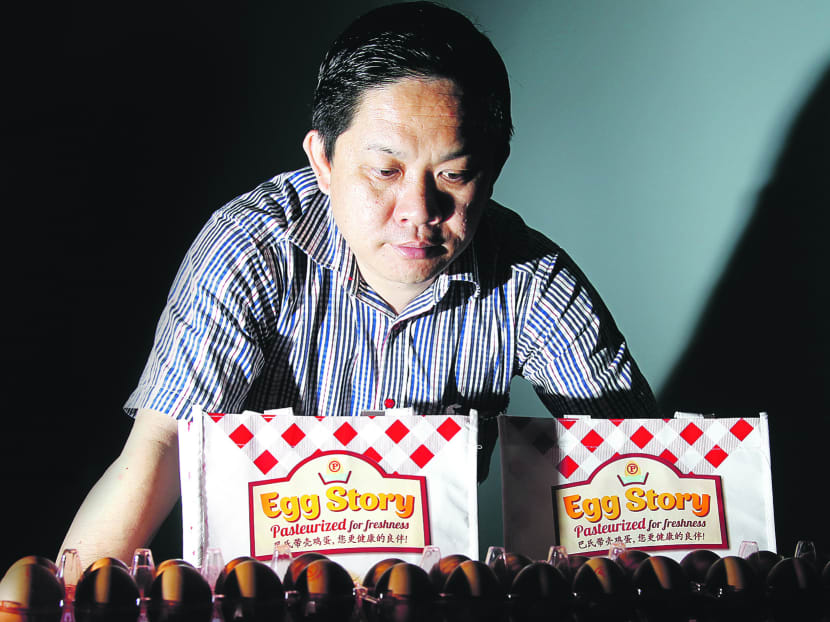
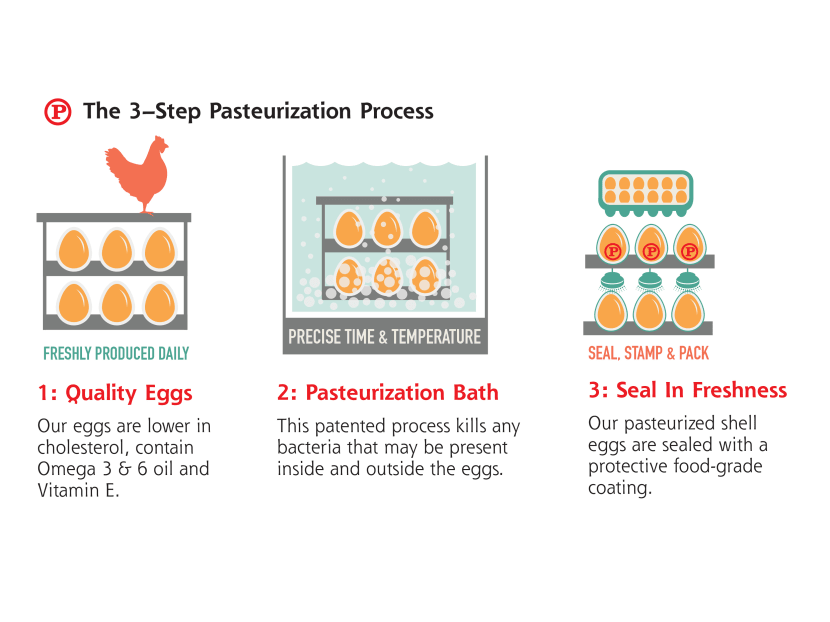
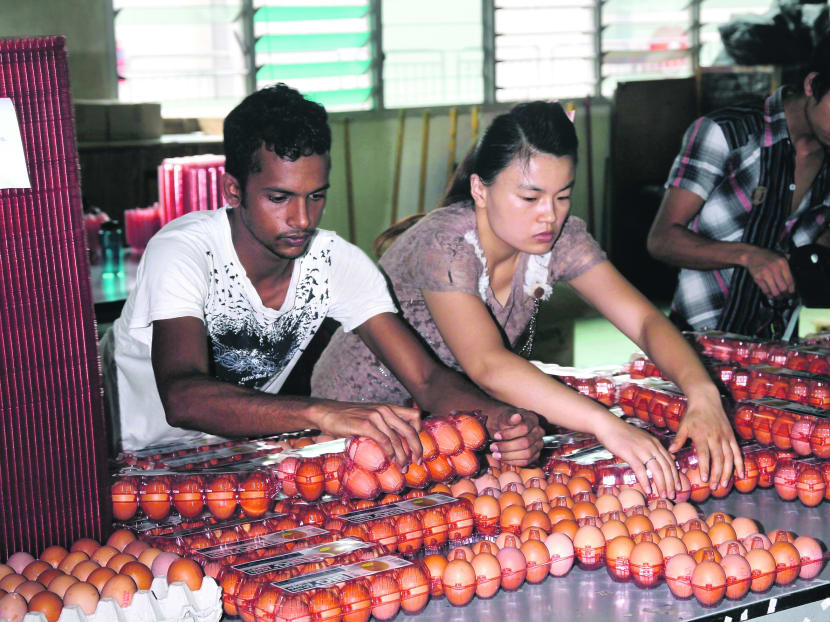
Fresh out of polytechnic, Ma Chin Chew expected to be done with a childhood of chasing chickens around. He would be spending the rest of his days sailing with the Navy, so he thought.
So keen was he that he signed up for a second contract after his scholarship bond with the Navy expired in 1995 (it enabled him to get a diploma in Computer Communications at Ngee Ann Polytechnic).
But life had other plans for this kampung boy from Chua Chu Kang, whose family dealt in importing and slaughtering chickens — soon after, his father met with a serious accident.
With business at the slaughterhouse “not so good”, he had to break his contract in 1996 and, the very next day, get his hands dirty running a factory.
Calling that period “very, very tough”, he had to pull 20-hour days to learn the ropes quickly while studying part-time for a degree at the National University of Singapore.
And then a stakeholder pulled out just when Mr Ma bought over the neighbouring farm to try to expand the business. His wife, he joked, did not see him much those years; but slowly and painfully, Hup Heng Poultry was making a profit.
And then, Humpty-Dumpty fell off the wall in 2000, when both his factories burned down in a massive blaze caused by a short circuit. He had two days to decide whether to pick up the pieces and carry on, or to fold up.
ALL FOR THE CLAN
Mr Ma grew up with chickens — his family began by rearing them on a farm, then later imported them wholesale. One of his earliest memories is of, at age eight, following his father around to the various wet markets back when live chickens were slaughtered on the spot for the buyer.
“My father would have preferred I stayed home to help out on the farm,” the 45-year-old recounted, “but I was curious about how people did business.”
Nonetheless, in 1989 when the Government announced that poultry slaughtering at wet markets would be phased out, he told his father not to carry on with the business.
After all, chicken farming had just gone through a tumultuous decade transitioning out of the kampung, and was becoming more beset with regulations and rules. It did not seem worth the effort.
His father ignored him, opening a slaughterhouse in Senoko in 1991; likely, Mr Ma said, because his dad wanted to ensure the family clan would continue to have a stable living.
Nearly a decade on, the son faced his own crossroads after the factories burned down in August 2000. Mr Ma was given an ultimatum by machine suppliers who told him to decide within 48 hours whether to rebuild.
In the end, it was hardly a choice: The whole family depended on the business, including his relatives and elder brother and sister who worked for the company.
So Mr Ma tapped the Government’s Land Utilization Scheme to rebuild the plant to double its original size, and it re-opened on Christmas Eve. It took almost seven long years before Hup Heng Poultry’s business returned to what it had been.
A FOOL FOR SAFETY
One thing that developed into a business obsession for him was safety — a theme that had permeated the rules the Government implemented over the years, such as when they centralised slaughterhouses or introduced a system to keep slaughtered fowl frozen in order to limit bacterial growth.
Inspired, he decided that the slaughterhouse would go “all white”.
Ignoring Chinese superstition (white in Mandarin is “bai”, and “bai chi” means “fool”) he mandated that the factory’s production and processes be done against a white backdrop — from uniforms to baskets and even transport vans — as “white is the easiest colour to see if (anything) is dirty or clean”.
Staff were put through training and Mr Ma had information disseminated about safety breaches he’d heard about elsewhere. Such efforts resulted in his slaughterhouse being the first to be granted an A grade by the Agri-Food & Veterinary Authority (AVA) of Singapore.
As such, when he began looking into egg-farming, Mr Ma was flabbergasted to discover that eggs from the region were not washed before being sold.
In 2003, he was introduced to egg production by N & N Agriculture owner Zhang Tang Zhi. He was intrigued by the business, despite the fact that the egg farm bled red every year and sold almost all its supply to wholesalers.
Such a business model could not survive in Singapore, Mr Ma said, where eggs are a “price-driven market” unlike in China where “wholesalers are very loyal”. He advised his friend to sell his eggs directly to the supermarkets, and even bought a small share of the company in 2006 to facilitate this. Eventually profits rose.
Then in 2009, Mr Ma learned about pasteurisation of eggs — a technology that gelled perfectly with his safety-conscious mind. The year after, he bought out the company.
JUST ONE BAD EGG
“I used to think, an egg is just an egg, but that is not true,” he said. Cross-contamination is everywhere in the business, he noted.
Despite all his safety precautions — his workers get mandatory health checks and immunisation jabs, while all vehicles entering or leaving are hosed down to wash off contaminants — it takes just one salmonella-contaminated egg rolling down a conveyor belt to affect the entire line, not to mention the packers handling the egg, he said.
What makes things worse is that caged chickens step in their own droppings, unlike in the kampung where chickens laid their eggs in the hen house and did their business outside. Unfortunately, free-range farming is not so feasible in land-scarce Singapore and Malaysia, he said.
Simply cleaning a dirty egg does not solve the problem, he contended. Conventional cleaning here is done by hand, with a cloth. “But that is contaminating all the other eggs as well since it is the same cloth! I have always wanted to change (the practice). And that is one reason why I invested in pasteurisation.”
When first introduced to the concept, he could not fathom how eggs could sit in a hot water bath for an hour without being cooked at all. But he was soon so convinced it was the next big thing, that he invested S$11 million to license and bring the American technology here.
“I had finally come across a way to pasteurise the eggs in their shells without cracking them, which means consumers would be able to eat eggs with peace of mind — it would be the safest eggs in town.”
PAYING THE PRICE
It took two years to commission, build and install the machine, not to mention renovate an extra factory to house it. While the older half of his farm producing conventional eggs is still open-air and breezy, the pasteurisation facility is sealed off in its own temperature-controlled building, with conveyors, pans, pipes, vents and a gigantic vat where the eggs sit.
The exact details — such as what the temperature is or how long the bath takes — are closely guarded, but the technology is touted to kill off pathogens such as salmonella, which causes food poisoning, as well as the bird flu virus.
It also extends shelf-life. The pasteurised eggs survived 45 days in ambient room temperature, 98 in air-conditioned temperatures, and 120 days in chillers, according to the AVA’s tests. The pasteurisation project was supported by the authority’s Food Fund, which aims to build resilience in Singapore’s food supply.
Said Mr Ma: “Someone has to come out and correct that mentality (the lack of concern about safety). We have to start the consensus that what we produce is good for the consumer. That’s the ethics of business.”
The next big battle is convincing consumers to pay the premium for safety — a carton of 10 pasteurised eggs costs from S$3.10.
Said Mr Ma: “Take the milk powder issue in China. It happened because the procurement departments of all the supermarkets squeezed their suppliers to be cheaper. So whoever can come up with the most affordable cost wins. Similarly for eggs — the price may go down and down and down, but at the end of the day what are you eating? Once you know, it’s too late. “
“Maybe I’m a bit naive, but I want consumers to understand that food safety has a price.”
TURN POOP INTO ELECTRICITY
While some say farming is slowly dying here, especially with crunches in labour (about half of his 117 workers are foreigners), rising operational costs and so on, Mr Ma said such challenges are “an opportunity to innovate, be more automated” and go green by recycling what they can.
Take for instance the 70 tonnes of manure produced by his 500,000 hens in their cages. The process of turning this into fertiliser required double the weight in wood chips and 3,000 litres of diesel, and the “incredible” pong used to drive Lim Chu Kang residents mad, he said.
“Now, you come in here, you do not have any odour,” he beamed proudly. His solution was to be the first to build a biofuel generator on a farm, able to generate enough electricity to power the plant and get rid of the waste — with the “millions of dollars” in cost savings passing on to consumers.
The generator is now in its “final stages” of being completed, and he proudly pointed out that the air-conditioning and lighting in the interview room were powered by it,
Fidgeting excitedly, he talked about a slew of other ideas — such as turning old hen’s meat, which he currently has to discard, into chicken chips, a process he saw on a study trip to Mexico. Or buying high-fibre waste grain from beer breweries and soy bean remains from soy bean milk factories to reduce his feed costs (which have jumped 80 per cent due to drought-impacted prices of corn last year).
All these, though, are on hold. The lease on his land runs out in five years, with no sign so far that it will be renewed by the Government. Uncertain about the future, he has not sold his two children — the boy is 10, the girl 12 — the idea of carrying on the business, as he will likely call it quits if the land is reacquired.
“To build a farm of the same scale will require S$30 million,” he stated sombrely, and “the risk is too big.” No bank, he said, would want to loan that sort of cash, especially with no collateral.
But for now, he will keep pushing the message that farming, an “exciting” job for him, can survive, be safe and profitable, even on this tiny island.





